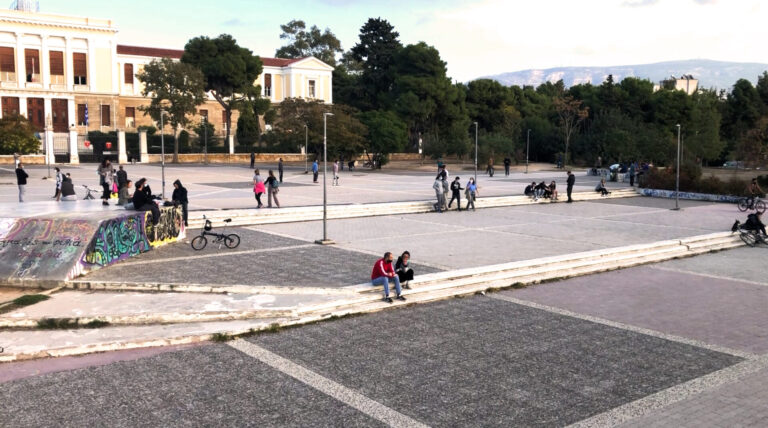Our contribution puts forward an examination of public spaces as infrastructures of care. The eruption of the COVID-19 pandemic, and the “social distancing” measures imposed by several governments around the world, transformed the very use and conceptualization of urban public spaces. In Athens, Greece, public space, which had already been in different ways at the forefront of multifarious crises since 2010, reemerged, once again, as a critical site of sociopolitical antagonism. Public spaces, such as squares, became central places where people could come together to share knowledge and emotions, collectively alleviate anxieties, and thus (re)negotiate their positionality in the city. Such formations and enactments of social connection, affectivity, and antagonism, reflect the entanglement between everyday life and the political, and also draw attention to the association of public space with practices of care for collective well-being during precarious times. During the ever-increasing securitization and policing of urban spaces in Athens, in which everyday life has come to be ever more permeated by precarity and uncertainty, public spaces have been reenacted as safe and more inclusive environments where people can be and act together. Our contribution also employs a video to render more intelligible the affective interconnectedness of sounds, images, bodies, materialities, and practices in public space. By attending to the affective dynamics of a public square in central Athens, we examine the entanglements between the sociopolitical production of public space and forms of care during the COVID-19 pandemic.
